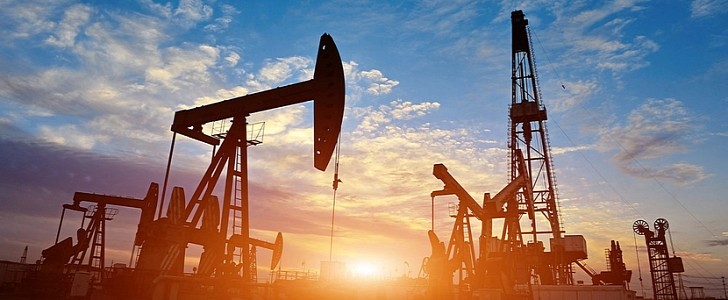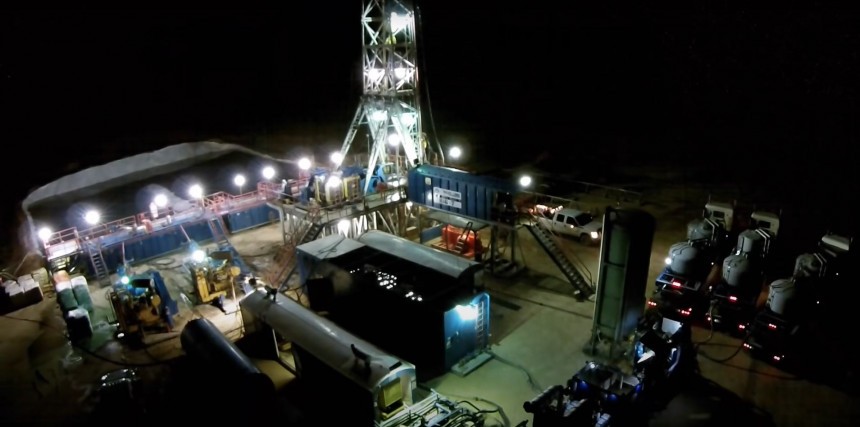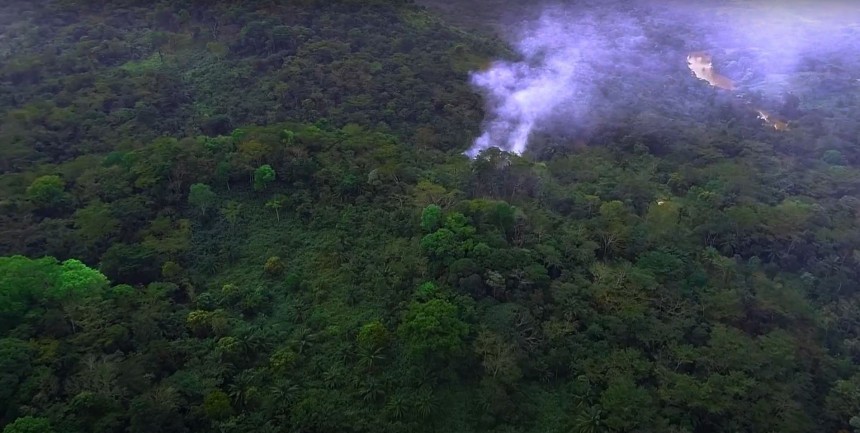Congo is aiming to become the next destination of oil investments, even if Western countries are actively trying to lower their harmful emissions. The African nation is determined to go ahead with the plan, even though it previously received $500 million to protect its tropical forests. Here’s what you need to know.
Climate change is real. So is our need for energy. By now, it's entirely clear to everyone that we can't just switch simultaneously to all-electric vehicles. It's simply not feasible. The process of phasing out all internal combustion engine cars, trucks, vans, trains, and other types of machines used in various industries is not going to happen overnight. The simplest yet most convincing proof is the current situation that's surrounding passenger vehicles – they're here, but they're not suitable for everyone just yet. There's a lot more that needs to be done.
If you’re still convinced that we could all just instantly abandon everything that has an internal combustion engine, then you should remember that even Tesla’s Elon Musk called for an increase in oil and gas output. The CEO underlined that “sustainable energy solutions simply cannot react instantaneously to make up for Russian oil & gas exports.” And he was right. Only after an international agreement to boost oil output had been reached between major oil-producing countries did we see the national average gas price dropping around the $3 mark, as it was in 2021.
Even if fossil fuel used in transport is being targeted as the main cause for global climate change and developed nations constantly apply pressure on oil and gas companies to invest more in green alternatives, the reality struck everyone when demand outgrew the supply. Banks, as well, were inclined to announce they’re giving up on financing new fossil fuel business developments. However, when a gallon of gas reaches the unbelievable price of $9.79… Well, that’s when you want to start asking some questions.
Congo’s leaders understood what was going on. They saw what happened in Europe and North America. When the Russians started playing with the supply, economies reliant on exports from the East started to tremble. The African nation now wants to be a part of the international community that exports and refines oil.
That’s bad news for everyone except the Congolese economy. They would surely have enough interested parties, but the environmental impact would be devastating.
The Congo Basin rainforest is an important ecosystem. It’s the world’s second-largest, and it has encapsulated over three years of global carbon emissions. Upsetting that delicate balance could mean trouble for everyone.
But $500 million spread over a decade and between multiple programs is no match for what competition between major oil producing and refining companies can bring.
The Democratic Republic of Congo is also part of the Paris Agreement. The document entered into force two years ago. The country agreed to take the necessary measures to stop the global temperature from rising above two degrees Celsius (3.6 F) and to get involved in transitioning to clean development. Now that’s going to be a lot harder to achieve.
Now, instead of taking the necessary steps to properly use these environmental funds, Congo decided to invite entities that can start drilling as soon as the first contract is signed. The African country is ready to give up large chunks of land disguised as “oil and gas fields.” These extend into important areas like the Virunga National Park, where gorillas found sanctuary or the tropical peatlands that keep harmful gasses from reaching our atmosphere. Essentially, we’re looking at swamps or, as experts call them, wetlands with thicker water-logged soil that are specific to parts of Asia, Africa, and South America.
Still, that doesn’t mean that we should force both Congo countries into poverty. It’s their land and their decision to do whatever they see fit with it. However, being part of international agreements might cause some problems with the financial help that developed nations are constantly sending. International action or even some forms of condemnation aren’t feasible for now since even Norway – the European country with most new EVs – is planning on increasing drilling and refining.
Thus, it’s no wonder that Congo’s environmental representative said it’s their country’s priority to save the planet.
The African nation announced their intention to sell land and drilling rights on Twitter and tagged Chevron and TotalEnergies, even though both the American and the French entities didn’t confirm their involvement.
Congo is also an important country for EV manufacturers since it has rich lithium and cobalt deposits that are being extracted for battery making.
For now, the officials are bent on turning important land into oil extraction fields, and nothing looks like it could turn them away from this decision. Let’s see if big names from the fossil fuel industry start to destroy more important land for gas, diesel, kerosene, and petroleum derivatives.
According to Japan Times, locals are against having their area turned into a drilling nightmare. They are ready to start protesting. The people think new oil wells would only enrich people that are already well off.
If you’re still convinced that we could all just instantly abandon everything that has an internal combustion engine, then you should remember that even Tesla’s Elon Musk called for an increase in oil and gas output. The CEO underlined that “sustainable energy solutions simply cannot react instantaneously to make up for Russian oil & gas exports.” And he was right. Only after an international agreement to boost oil output had been reached between major oil-producing countries did we see the national average gas price dropping around the $3 mark, as it was in 2021.
Even if fossil fuel used in transport is being targeted as the main cause for global climate change and developed nations constantly apply pressure on oil and gas companies to invest more in green alternatives, the reality struck everyone when demand outgrew the supply. Banks, as well, were inclined to announce they’re giving up on financing new fossil fuel business developments. However, when a gallon of gas reaches the unbelievable price of $9.79… Well, that’s when you want to start asking some questions.
Congo’s leaders understood what was going on. They saw what happened in Europe and North America. When the Russians started playing with the supply, economies reliant on exports from the East started to tremble. The African nation now wants to be a part of the international community that exports and refines oil.
A dirty money-making machine
At the Conference of the Parties in 2021 (COP26), country leaders decided to create a special $500 million fund for Congo’s tropical forests and swamps. The plan has been championed by former British prime minister Boris Johnson. Scientists presented the facts, and almost everyone listened. Unlike in the past couple of decades, facts about the environment now matter more than what lobbyists are trying to set as a public agenda.The Congo Basin rainforest is an important ecosystem. It’s the world’s second-largest, and it has encapsulated over three years of global carbon emissions. Upsetting that delicate balance could mean trouble for everyone.
But $500 million spread over a decade and between multiple programs is no match for what competition between major oil producing and refining companies can bring.
The Democratic Republic of Congo is also part of the Paris Agreement. The document entered into force two years ago. The country agreed to take the necessary measures to stop the global temperature from rising above two degrees Celsius (3.6 F) and to get involved in transitioning to clean development. Now that’s going to be a lot harder to achieve.
Like Norway, they just want the money
To tap all the potential oil that’s hiding under that huge place full of peat, Congo and its future partners would have to agree that over 30 billion metric tons of carbon could be released into the atmosphere just by trying to get to the oil. Dislodging and starting drilling would only add to this almost incomprehensible value. In the fight against climate change, this would be a major setback.Still, that doesn’t mean that we should force both Congo countries into poverty. It’s their land and their decision to do whatever they see fit with it. However, being part of international agreements might cause some problems with the financial help that developed nations are constantly sending. International action or even some forms of condemnation aren’t feasible for now since even Norway – the European country with most new EVs – is planning on increasing drilling and refining.
Thus, it’s no wonder that Congo’s environmental representative said it’s their country’s priority to save the planet.
The African nation announced their intention to sell land and drilling rights on Twitter and tagged Chevron and TotalEnergies, even though both the American and the French entities didn’t confirm their involvement.
Congo is also an important country for EV manufacturers since it has rich lithium and cobalt deposits that are being extracted for battery making.
For now, the officials are bent on turning important land into oil extraction fields, and nothing looks like it could turn them away from this decision. Let’s see if big names from the fossil fuel industry start to destroy more important land for gas, diesel, kerosene, and petroleum derivatives.
According to Japan Times, locals are against having their area turned into a drilling nightmare. They are ready to start protesting. The people think new oil wells would only enrich people that are already well off.









